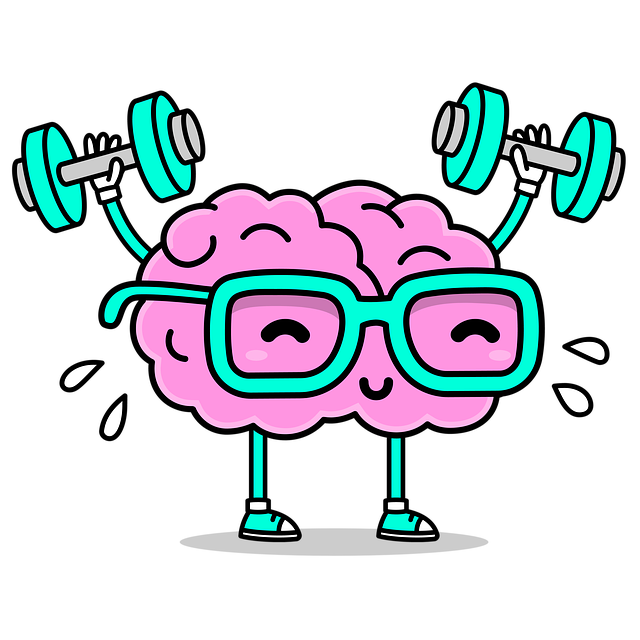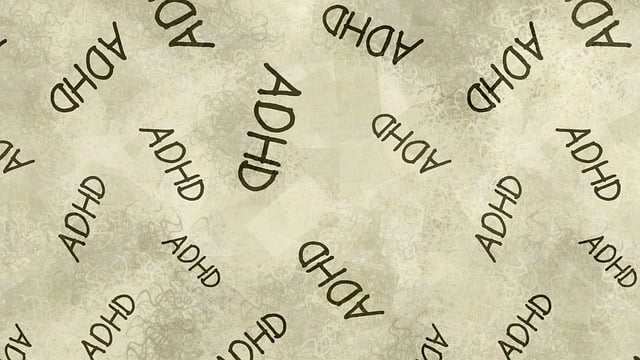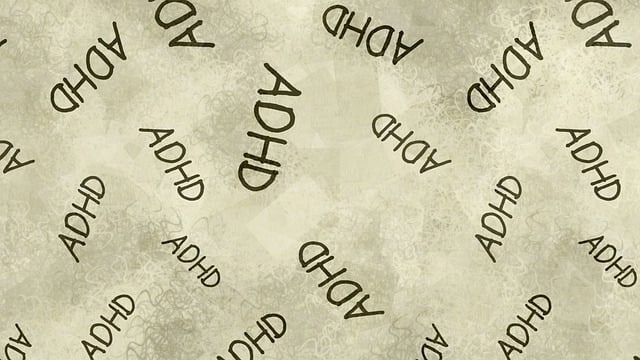Lone Tree ADD-ADHD Therapy offers specialized stress management workshops and community support to individuals with Attention Deficit Disorder (ADD) or Attention-Deficit/Hyperactivity Disorder (ADHD). These workshops, led by mental health experts, teach effective stress reduction techniques like Compassion Cultivation Practices, empowering participants to build inner resilience. Through structured sessions, interactive exercises, and peer support, the therapy helps clients manage daily stressors in academic and professional settings. The tailored approach, inclusive environment, and measurable outcomes make Lone Tree ADD-ADHD Therapy a leading provider of successful stress management strategies for individuals with ADHD.
Stress management workshops play a pivotal role in empowering individuals with ADD-ADHD to navigate life’s challenges. This article delves into the comprehensive guide for organizing and facilitating such workshops, focusing on stress understanding and its unique impact on this population. We explore effective strategies, from designing engaging content to creating supportive environments, ensuring success through practical tips and evaluation methods. Discover how these workshops can be a game-changer in promoting mental well-being for those navigating ADD-ADHD in the modern world, even in Lone Tree’s vibrant community.
- Understanding Stress and Its Impact on Individuals with ADD-ADHD
- The Role of Workshops in Managing Stress for Better Mental Health
- Designing Effective Stress Management Workshops for ADD-ADHD
- Creating a Supportive Environment: Tips for Facilitators and Participants
- Measuring Success: Evaluating the Outcomes of Stress Management Workshops
Understanding Stress and Its Impact on Individuals with ADD-ADHD

Stress is a significant challenge for individuals with Attention Deficit Disorder (ADD) or Attention-Deficit/Hyperactivity Disorder (ADHD), as they often struggle with time management, organization, and focus, which can exacerbate their stress levels. In today’s fast-paced world, understanding the impact of chronic stress on this population is crucial. High-stress situations can lead to heightened anxiety, difficulty concentrating, and even increased impulsivity in those with ADD/ADHD. This can be particularly challenging in academic or professional settings, where structured environments are essential for productivity.
Lone Tree ADD-ADHD Therapy recognizes these unique challenges and offers specialized workshops focused on stress management and self-care. Through Compassion Cultivation Practices, participants learn to develop inner strength and resilience, fostering a sense of calm amidst life’s storms. The Community Outreach Program Implementation within the organization aims to provide accessible resources and support networks, ensuring individuals with ADD/ADHD can navigate their daily struggles with enhanced coping mechanisms.
The Role of Workshops in Managing Stress for Better Mental Health

Workshops play a pivotal role in managing stress and promoting better mental health. They provide a structured environment where individuals can learn practical tools and techniques to cope with everyday stressors. These sessions, often facilitated by experts in mental health, such as Lone Tree ADD-ADHD Therapy professionals, offer a safe space for participants to gain insights into their stress triggers and develop personalized strategies for resilience. By combining education, interactive exercises, and peer support, workshops empower individuals to take control of their mental well-being.
In the context of Mental Health Policy Analysis and Advocacy, these gatherings can also foster a sense of community, breaking down stigma associated with stress and mental health issues. They encourage open dialogue and exchange of experiences, which is crucial for understanding the diverse needs within different populations. Moreover, workshops on Stress Reduction Methods and Social Skills Training can enhance participants’ ability to manage stress in social settings, improving their overall quality of life.
Designing Effective Stress Management Workshops for ADD-ADHD

Designing stress management workshops tailored for individuals with Attention-Deficit/Hyperactivity Disorder (ADD-ADHD) requires a nuanced approach that recognizes their unique challenges and strengths. These workshops should aim to create a safe and supportive environment, fostering understanding and self-compassion. Incorporating practices like Compassion Cultivation can significantly enhance participants’ ability to manage stress and regulate emotions effectively. By teaching mindfulness techniques, organizers can equip ADD-ADHD individuals with tools to navigate their symptoms and improve focus, thereby reducing burnout potential.
Engaging activities and interactive sessions are key to keeping the attention of ADD-ADHD participants. Visual aids, short breaks, and practical exercises can make workshops more effective. The goal is to empower attendees with strategies to manage stress in daily life while fostering a sense of mental wellness. Lone Tree ADD-ADHD Therapy emphasizes these principles, offering workshops designed to help clients develop personalized coping mechanisms that contribute to overall well-being and prevent burnout.
Creating a Supportive Environment: Tips for Facilitators and Participants

Creating a supportive environment is key to successful stress management workshops. Facilitators play a vital role in cultivating an atmosphere that encourages openness and active participation. This can be achieved by ensuring a comfortable physical setting, promoting active listening, and fostering a sense of community among participants. Using inclusive language and creating opportunities for shared experiences helps build trust and enhances learning.
Participants also have a responsibility to contribute to this supportive environment. Active engagement, open communication, and respect for diverse perspectives are essential. By adopting self-care practices and sharing personal experiences (when comfortable), individuals can strengthen their support network and learn from one another. This collaborative approach not only enhances the workshop experience but also cultivates skills that promote burnout prevention strategies for healthcare providers and confidence boosting techniques applicable to daily life.
Measuring Success: Evaluating the Outcomes of Stress Management Workshops

Measuring success in stress management workshops is an essential aspect of ensuring their effectiveness. It involves evaluating the outcomes and impact on participants’ mental wellness, a key focus area for Lone Tree ADD-ADHD Therapy. One effective method is through pre-and post-workshop assessments, tracking improvements in stress levels, coping strategies, and overall well-being. These evaluations can include questionnaires, interviews, or self-reported mental wellness journals, providing valuable insights into the workshop’s success.
Additionally, long-term follow-up sessions can offer a holistic view of the workshop’s sustainability. By encouraging participants to maintain their mental wellness practices, such as journaling exercises and mindfulness guidance, organizers can gauge the lasting impact. This approach aligns with the broader goals of cultural sensitivity in mental healthcare practice, ensuring that workshops cater to diverse needs and promote inclusive well-being. Moreover, sharing success stories through a mental wellness podcast series production can inspire others and highlight the tangible benefits of these initiatives.
Stress management workshops play a pivotal role in empowering individuals with ADD-ADHD to navigate life’s challenges. By combining education, coping strategies, and supportive environments, these workshops offer a transformative experience. As discussed in this article, understanding the unique stress responses of those with ADD-ADHD is essential for designing effective programs. Facilitators can foster success by creating safe spaces, encouraging active participation, and providing tailored support. Measuring outcomes through evaluations ensures continuous improvement, allowing Lone Tree ADD-ADHD Therapy to refine its approach and offer impactful, evidence-based solutions. Through such initiatives, individuals with ADD-ADHD can enhance their mental well-being and lead more fulfilling lives.














